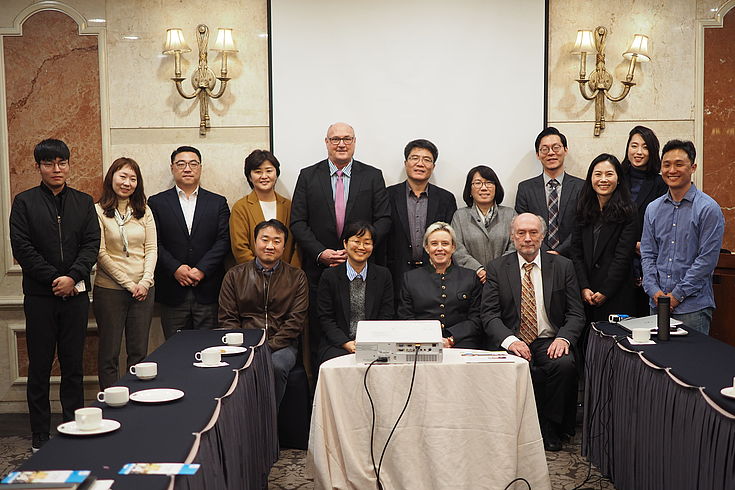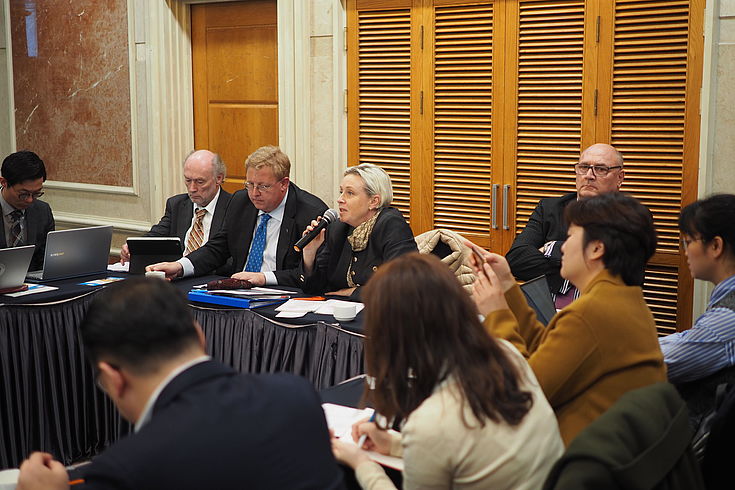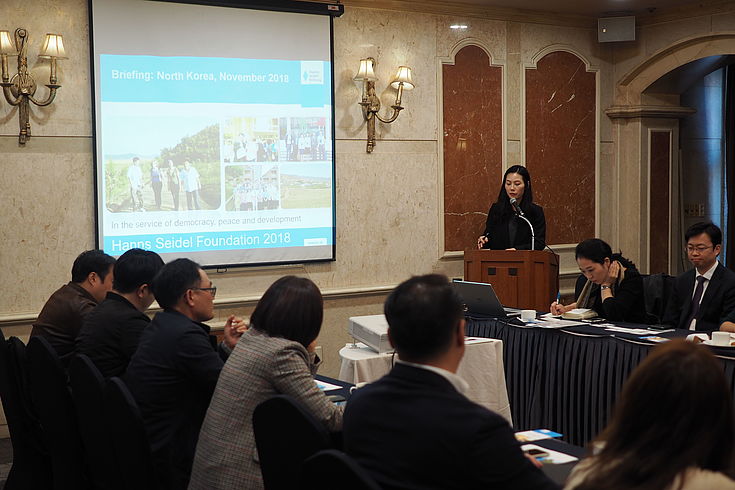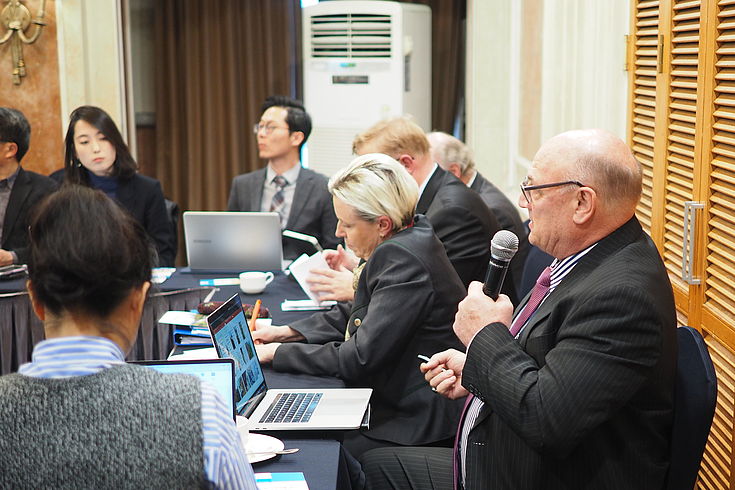Briefing
More Cars, Light and Electricity in North Korea
Participants of the briefing
HSS
Hanns-Seidel-Foundation has been working for many years with a variety of South and North Korean partners, especially in the fields of environmental protection and sustainable development, including Concern Worldwide Korea, EAAFP, research institutions and ministries. Most of the South Korean partners also have a keen interest in the current situation in North Korea and in opportunities for (better) cooperation with North Korean organizations. Therefore, following the HSS delegation's trip to North Korea earlier this month, a briefing was organized on 14 November 2018 to inform some of our South Korean partners about the latest observations and experiences of the HSS in environmental cooperation with North Korean partners.
Dr. Susanne Luther (Director of the Institute for International Cooperation of the HSF) informed about the latest developments in the DPRK
HSS
After a quick introduction round, Dr. Susanne Luther, Director of the Institute for International Cooperation of HSF, opened the briefing with a report about her trip to the DPRK, in which she informed about the ongoing development in Pyongyang, which is reflected in more and more cars, light, electricity, etc., albeit still less than in other countries. In addition, more and more private and market activities are taking place. Many people own modern winter jackets, smartphones or even electric bicycles, so there are almost no signs of poverty in the center of Pyongyang today. Unfortunately, however, urban progress has not yet taken place in this way in rural areas. Although the nature and landscape in the rural areas around Pyongyang are impressive, there is still room for improvement in terms of infrastructure and people's living standards. Agriculture is still predominantly manual and access to water or electricity can be difficult. Thus, there is still a clear gap between the city of Pyongyang and rural areas, showing that these regions find it difficult to keep pace with the rapid pace of urban development. Dr. Luther also addressed the conflict between the preservation of still healthy ecosystems and landscapes that have been preserved due to the country's lack of development and the improvement of living conditions for rural people in the DPRK.
The event was moderated by Dr. Choi Hyun-Ah (HSF Korea)
HSS
To illustrate the observations of Dr. Luther, Dr. Bernhard Seliger, representative of HSF Korea, showed photos from North Korea and added further detailed information. Among other things, he reported that maps for reforestation projects were now drawn up in front of many North Korean cities and districts and that North Korea has now prepared reforestation plans for the next 10 years, which are thus longer-term reforestation plans than those of many industrialized countries, despite the fact that North Korea is also confronted with many current reforestation problems. With regard to environmental cooperation with North Korea, Dr Seliger explained that it can be difficult at present to work with North Korean border counties, as approval from the highest level is usually required, while it is much easier to work with central counties that are usually open to cooperation with foreign partners. In general, it is also more advantageous to start with smaller projects at lower levels and then gradually expand the scope of these projects.
Thomas Fisler (former representative of the Swiss Development Cooperation) spoke about life in North Korea
HSS
Thomas Fisler, who lived in Pyongyang for four years as a representative of Swiss Development Cooperation, gave an even deeper insight into life in the DPRK. He pointed out that North Korea, given that 41% of the North Korean population, i.e. around 10 million people, are undernourished, receives extremely little international humanitarian aid, which could also be related to the remaining sanctions. However, Mr Fisler also felt that the sanctions did not have a major direct impact on the rural population. Since most of North Korea's food production is still handmade, rural people are used to growing their own food, as well as to hard work without outside help. With regard to cooperation, he stressed the crucial importance of ensuring that cooperation is beneficial to both countries, working on an equal footing with North Korean partners and respecting their expertise rather than telling them what to do.
After the presentations, the three speakers took time to answer and discuss the participants' questions on the conflict between economic development and environmental protection, as well as on other issues related to environmental conservation.




